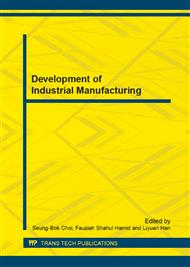p.465
p.469
p.473
p.478
p.482
p.491
p.495
p.499
p.504
Modeling a Thermo-Stressed State of the Cast-in-Situ Low Carbon Footprint Alkali Activated Slag Cement Concrete Hardened under Hot Environment
Abstract:
Alkali activated slag cement concretes are low carbon footprint building mateirals, which can meet the requirements for sustainable development. The paper covers the results of modeling a thermo-stressed state of the cast-in-situ massive alkali activated slag cement concrete structure hardened under hot environment to meet the requirements for marine engineering application. The results show that alkali activated slag cement concretes have a substantially lower heat release than that of Portland, are suitable for cast-in-situ massive alkali activated slag cement concrete structure even under hot environment.
Info:
Periodical:
Pages:
482-490
DOI:
Citation:
Online since:
February 2014
Price:
Сopyright:
© 2014 Trans Tech Publications Ltd. All Rights Reserved
Share:
Citation:


